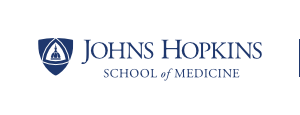JHSPH Alumni Profiles
Dr. Helen Powell
 Dr. Helen Powell completed her Postdoctoral Fellowship with the Bloomberg School of Public Health in the department of Biostatistics in 2015. She has a PhD in statistics from The University of Glasgow (2012), and a Bachelor of Science degree from the University of Strathclyde in Mathematics, Statistics, and Finance. She has also worked as an instructor both at The University of Glasgow and Johns Hopkins University. After completing her postdoctoral fellowship, she was a statistician for Mathematica Policy Research from 2015 to 2017, which is a non-partisan research firm providing consulting services to governments, foundations, and private-sector organizations. She is currently a Research Associate at the University of Maryland, Baltimore (UMB) where she works on the Vaccine Impact on Diarrhea in Africa (VIDA) project.
Dr. Helen Powell completed her Postdoctoral Fellowship with the Bloomberg School of Public Health in the department of Biostatistics in 2015. She has a PhD in statistics from The University of Glasgow (2012), and a Bachelor of Science degree from the University of Strathclyde in Mathematics, Statistics, and Finance. She has also worked as an instructor both at The University of Glasgow and Johns Hopkins University. After completing her postdoctoral fellowship, she was a statistician for Mathematica Policy Research from 2015 to 2017, which is a non-partisan research firm providing consulting services to governments, foundations, and private-sector organizations. She is currently a Research Associate at the University of Maryland, Baltimore (UMB) where she works on the Vaccine Impact on Diarrhea in Africa (VIDA) project.
I made the choice for a lot of reasons that were very personal to me. I was still living in Baltimore and traveling to DC, and that was very hard on me. But I also found that although there were a lot of things I really enjoyed being in industry, such as working 9-5, not getting emails outside of that or on the weekends, etc., All of that is very nice, but it’s like that because it is very structured. You get told what work to do and that’s it. The work is all about a deliverable, not about how you can best answer a research question. You just need to get the job done, and I thought I would like that, but I didn’t. So I made the switch back to an academic environment.
As far as similarities between the two sectors, you still always have a deadline. That doesn’t change. But the work is very different – hours worked are very different, having a conversation about the work is very different. There is a difference between being in a group that wants to learn vs. wanting to know the answer. In my current job at the university, people want to understand the why, whereas at Mathematica, they wanted to know ‘did you get the answer?’, ‘is the answer what we thought it was going to be?’ and ‘has someone checked the work?’ because there is always a QC process.
For me, there are not a lot of similarities.
One thing I did manage to bring from Mathematica to my new job is when you’re working in industry, you have to learn how to be quick and think on your feet. People are not very receptive to mulling over a problem. I also had to learn a lot of people management type skills – interacting with clients, and to speak in a very even-toned way, having to stay very calm even if things are getting out of hand, being very political in your responses. And that does help in most aspects of life.
Whenever you come out of a training program, you think you’re at the top of the game. You think, “I know so much, how could I ever know more?” and it’s a hard fall. You don’t know everything. You know a tiny facet and you don’t have the people skills you should have. You don’t have the capability to manage a team, even though you think “I’m very smart, I’ve learned all these things, I should be able to do all these things,” it’s not like that. It’s very different. It was a hard transition. It took staying cool and calm and learning to listen instead of speaking.
For the job I’m in now, if I had gone straight to this from doing my postdoc, I would have had a very smooth transition. Yes, the people skills I gained from my time in industry help a lot, but the skills I learned as a postdoc (more so a postdoc than graduate student), were how to be independent, how to recognize a problem, look for a solution, and ask for help when I needed it. But going from being a trainee in academia into industry, I could only take my basic skills with me – I knew how to do programming from being a statistician, but I was very much taking myself down path A with my postdoc, and when I went down Path B, those skillsets didn’t automatically flip over. To work in industry, your content knowledge and technical skills have to be more diverse, and when you’ve spent time doing a PhD and a postdoc, you have to be very narrow, so I had to find a way to pick up new skills very quickly.
I think as a postdoc I was paid $55,000, which is generous and to my understanding not the norm. I believe it is Hopkins specific. At UMD, 47k-50k is more the range. Also, people I worked with at JHU were at 60k-65k. So it is a range.
When I went to industry, they offered me $110,000, which was like “oh my god, this is amazing”. It felt fantastic. And they offer things like signing bonuses, but you do want to negotiate for things like that. Every year you will get an increase (which might be based on performance), and if you start at 110k and take the signing bonus, the increase will be based on the 110k (without the signing bonus). So a $5,000 signing bonus seems like a nice thing, but you want to start with a base salary as high as you can.
My shift back to academia was a cut in pay. I knew that would happen and I was prepared for that, but I think having the larger salary from industry helped me push them as high as they could go. It is always worth negotiating, you should always ask, but base asking on something.
Signing bonus for industry is all you’re going to get. Holidays are limited, and I had no sick leave at Mathematica. That was a nice and alluring aspect of going back to academia. Even though I took a cut in salary, Academia has a lot more fringe benefits, such as time off (vacation, sick time, personal days, federal holidays) and very generous retirement packages. All of those things have value. For me personally, as someone who is from another country and likes to travel, vacation has a high premium to me. We all also need a retirement fund.
Editor’s Note: Benefits may be company and position specific. Be sure to evaluate both salary and non-salary benefits/compensation when evaluating an offer.
With a career in statistics, you can do anything you want to do – if you want to teach, you can teach, you can teach in any setting. Statistics is taught at a very young age now. If you want to get involved in any company, you could work with them. Everyone needs statisticians. You could go independent, you could be a consultant. You can do anything you want. Statistics is a really fantastic field to have chosen. You are needed universally by the world, so you just need to pick what you want to do. And if you want to change, if you decided you picked something you didn’t want to do, you can change it at any point.
All government jobs are not available. There is a little loophole where they “can” be available to me, but it seemed too hard so I didn’t bother. I would have liked to have had that option. When you are a non-US citizen, every job has to support you in your visa if you are on the visa path. So Mathematica had to support my visa. They had to put me in the lottery to get it. UMB had to agree to take it on. That is always something I have to discuss at every job and every interview – it’s actually on my CV because I don’t want to go to the interview and then have them realize that I can’t get the job because of that. And a lot of jobs now post online if they don’t support visas, which I don’t have a problem with and it’s nice to know upfront.
If you go to the interview, and something doesn’t feel right, its not right. Don’t take a job because it’s the offer on the table and you are too scared. If something doesn’t feel right, its not. You’ll know when you’ve interviewed for the job that’s going to sit well with you.
Thank you again to Dr. Helen Powell for her time in conducting this informational interview.
This interview was conducted by Julie Nadel, PhD, in collaboration with the Professional Development and Careers Office at the Johns Hopkins School of Medicine.
Current students: if you are interested in connecting with Dr. Powell or other alumni for your own career exploration, please contact: phd_recruit@jhmi.edu.
Alumni: If you are willing to be contacted by a current student for an informational interview to have a profile made about your career path, please contact: phd_recruit@jhmi.edu.
